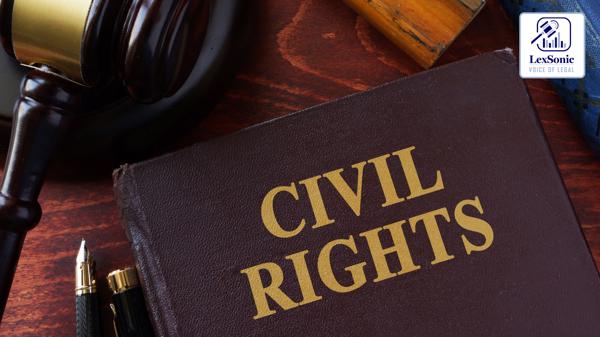Bombay High Court Upholds Validity of Caste Certificate, Denies Petitioner's Request for New Category.
28 November 2024
Civil Rights >> Civil & Consumer Law
In a recent decision, the Bombay High Court dismissed a writ petition seeking the issuance of a new caste certificate for the petitioner, while upholding the validity of a previously issued certificate under the Special Backward Class (SBC) category. The petitioner had applied for a certificate confirming his status as a "Panbhare Koli," a sub-caste of the Koli Malhar tribe, despite already holding a valid Koli (SBC) caste certificate obtained in 2011.
Background of the Case:
The petitioner had previously applied for a caste certificate in 2009, claiming to belong to the Koli (SBC) category, a request that was validated by the Competent Committee, which issued the certificate in March 2011. However, in 2022, after conducting personal research, the petitioner sought to change his caste status, applying for a new certificate as a "Panbhare Koli," a sub-caste of Koli Malhar. This claim was rejected by the Sub-Divisional Officer (SDO) on May 31, 2022, and the petitioner’s subsequent appeal before the committee on June 22, 2022, was also dismissed by an order passed on February 12, 2024.
The petitioner contended that the rejection of his application was improper and that the authorities had not followed the correct procedure. He argued that the Committee had failed to record specific reasons for rejecting his application and did not conduct a required inquiry in accordance with the Maharashtra Scheduled Tribes (Regulation of Issuance and Verification of) Certificate Rules, 2003 (the 2003 Rules). Specifically, he pointed to Rule 4(9), which mandates a notice and an inquiry if the competent authority is not satisfied with the applicant’s claim.

Legal Arguments:
The petitioner’s legal team presented two main arguments:
Procedural Lapses: The petitioner contended that the competent authority had not followed the proper procedure in rejecting his application and should have given notice and conducted an inquiry before arriving at a decision.
Entitlement to a New Certificate: The petitioner also argued that he was not precluded from seeking a new certificate, even though he already held a Koli (SBC) certificate, claiming that new research indicated his ancestral links to the Panbhare Koli sub-caste.
On the other hand, the learned Assistant Government Pleader (AGP) argued that the petitioner’s claim was invalid because he already held a caste validity certificate under the Koli (SBC) category, which had been issued after a thorough inquiry. The AGP emphasized that once a validity certificate is granted, the petitioner is precluded from making a new claim for a different caste certificate.
Court’s Ruling:
The Court, after reviewing the petitioner's claims and the legal framework, concluded that the petitioner could not seek a new caste certificate for a different category while preserving the one he had already received. The judgment rested on two primary considerations:
Validity of the Previous Certificate: The Court emphasized that the validity of the petitioner’s Koli (SBC) certificate issued in 2011 was legally binding. As per settled law, once a caste validity certificate is issued under the relevant statutory procedures, it holds the force of law, and a person is not entitled to make a fresh claim for a different caste certificate while retaining the existing one.
Estoppel Principle: The Court held that by maintaining his rights under the existing validity certificate, the petitioner was effectively barred from seeking another certificate for a different caste, even if he had conducted personal research and wished to shift his caste classification.
Additionally, the Court noted that the petitioner’s claim to a new certificate was not justified, as there was no legal provision allowing someone to retain one certificate while simultaneously seeking another. Furthermore, the Court stated that there was no need to remand the matter for further inquiry under Rule 4(9) because, even if the correct procedure had been followed, the petitioner’s underlying claim to a different caste certificate would not have been valid.
Legal Precedents:
The judgment cited a recent decision by the Supreme Court of India, Maharashtra Adiwasi Thakur Jamat Swarakshan Samiti vs. The State of Maharashtra (2023), which reinforced the importance of following prescribed procedures under the Maharashtra Scheduled Castes, Scheduled Tribes, Denotified Tribes, and Other Backward Classes (Regulation of Issuance and Verification of) Caste Certificate Act, 2000. The Court observed that once a caste or tribe validity certificate is issued to a person, especially based on paternal lineage, that certificate should be treated as final unless specific legal grounds exist to challenge it.
Conclusion:
In conclusion, the Bombay High Court’s decision reflects a strict interpretation of caste validity procedures. The petitioner’s attempt to change his caste category while retaining the existing certificate was deemed inadmissible. The Court reinforced the importance of adhering to legal processes for caste verification and ruled that the petitioner was not entitled to a new caste certificate under the Panbhare Koli category, as it would conflict with the validity of his current certificate. The writ petition was, therefore, dismissed.
